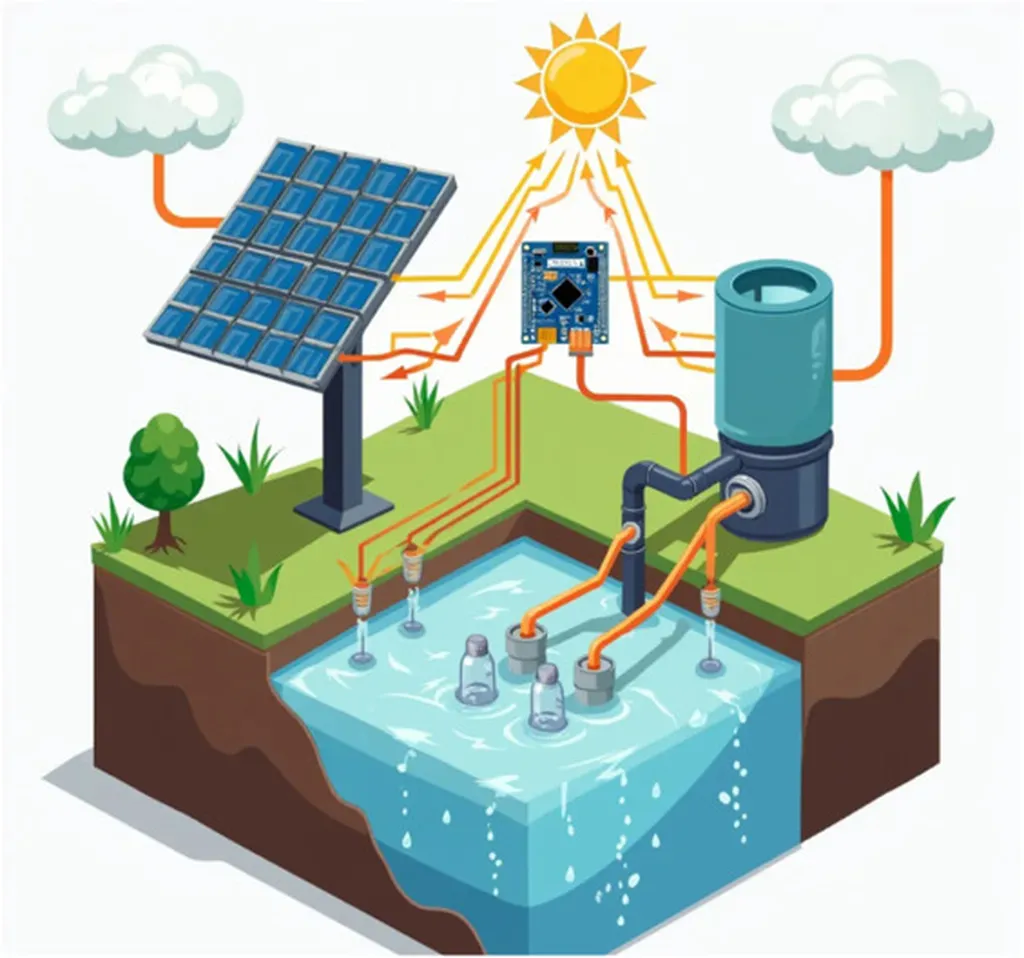In the heart of Saudi Arabia, a groundbreaking study led by Haneen M. Bawayan from King Abdulaziz University is reshaping the landscape of off-grid water pumping technologies. Bawayan, an expert in electrical and computer engineering, has published a comprehensive review in *Scientific African* (translated to English as “African Science”), shedding light on the control strategies of hybrid renewable energy systems (HRESs) for water pumping. This research is not just academic; it’s a beacon for the energy sector, offering sustainable solutions for remote and agricultural areas where grid access is limited or unreliable.
Bawayan’s work focuses on Hybrid Renewable Energy Water Pumping Systems (HREWPS), which combine photovoltaic (PV) and wind energy. These systems are crucial for regions where traditional energy sources are scarce or inconsistent. “The integration of PV and wind energy offers a robust solution for off-grid water pumping,” Bawayan explains. “Our review critically examines control strategies to improve energy efficiency, reliability, and cost-effectiveness.”
The study categorizes and compares various control methodologies, including maximum power point tracking (MPPT) algorithms like perturb and observe (P&O), incremental conductance (IC), fuzzy logic, artificial neural networks (ANN), adaptive neuro-fuzzy inference system (ANFIS), and swarm intelligence techniques. These advanced motor control methods are evaluated across different motor types, such as induction motors (IM), brushless DC motors (BLDCM), permanent magnet synchronous motors (PMSM), switched reluctance motors (SRM), synchronous reluctance motors (SynRM), and open-end induction motors (OEIM).
One of the most intriguing aspects of Bawayan’s research is its emphasis on battery-less configurations and hybrid storage systems. These innovations optimize real-time performance and increase system resilience, making them particularly attractive for commercial applications. “By integrating AI-enhanced energy management frameworks, we can achieve unprecedented levels of efficiency and adaptability,” Bawayan notes.
The study also highlights emerging technologies like model predictive control (MPC), IoT-based remote monitoring, and blockchain-enabled microgrid energy trading. These advancements are poised to revolutionize the energy sector, offering scalable and sustainable solutions for off-grid water pumping.
Bawayan’s research outlines a roadmap for the future of off-grid water pumping systems, emphasizing the role of smart control solutions in addressing global water and energy challenges. “Our goal is to create sustainable, intelligent, and adaptive systems that can meet the needs of communities worldwide,” she says.
As the energy sector continues to evolve, Bawayan’s work serves as a guiding light, illuminating the path toward a more sustainable and efficient future. Her research not only advances our understanding of HREWPS but also paves the way for innovative commercial applications that can transform the energy landscape. With the publication of this review in *Scientific African*, the stage is set for a new era of off-grid water pumping technologies, driven by cutting-edge control strategies and smart solutions.

